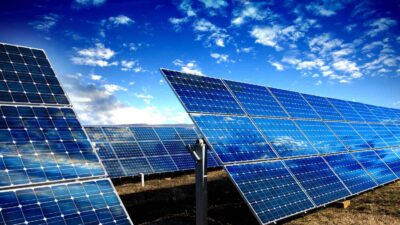Solar Energy Systems
Use of Plate Heat Exchangers in Solar Energy Systems; Solar energy is becoming an increasingly used resource to meet modern energy needs and ensure environmental sustainability. Effective use of this renewable energy source requires various technological methods. One of these methods is the use of plate heat exchangers in solar energy systems.
Use of Plate Heat Exchangers in Solar Energy Systems
 Heat exchangers are generally used in solar energy systems in hot water production or heating systems. In these systems, water is heated or energy is provided to heating systems by using light and heat from the sun. Heat exchangers are used in these systems to transfer the heat from the sun to water or another carrier fluid.
Heat exchangers are generally used in solar energy systems in hot water production or heating systems. In these systems, water is heated or energy is provided to heating systems by using light and heat from the sun. Heat exchangers are used in these systems to transfer the heat from the sun to water or another carrier fluid.
Generally, solar panels are used to collect solar energy. The light and heat collected by solar panels must then be converted into usable energy. At this point, exchangers come into play. The heat collected from solar panels can be transmitted to the exchangers through a fluid. Exchangers take this heat and allow another fluid (usually water or a fluid used in heating systems) to heat.
For example, heat collected by solar panels can be transferred to the hot water tank or heating system via a heat exchanger. Heat exchangers are used to conveniently convert heat from solar energy into usable energy, which can be used for hot water supply or heating in homes. In this way, the efficiency of the solar energy system is increased and the usage areas of solar energy are expanded.
The main purpose of solar energy systems is to convert the light and heat from the sun into usable energy. Exchangers play a critical role in this conversion process. Heat exchangers take the heat collected by solar panels and heat another fluid. In this way, solar energy is effectively converted into usable energy.
Primarily, solar panels are used to collect sunlight. These panels convert sunlight into energy through technologies called photovoltaic or thermal. However, an additional step is required to store this energy and make it available. This is where exchangers come into play.
Use of Plate Heat Exchangers
Plate heat exchangers heat water or another carrier fluid by taking the heat collected from solar panels. This hot water can then be used directly for domestic use or used to heat the house through a heating system. This enables the practical use of solar energy in daily life.
Advantages of Plate Heat Exchangers in Solar Energy Systems
The importance of exchangers is to increase energy efficiency and reduce dependence on systems powered by fossil fuels, while expanding the use of solar energy. In particular, the use of plate heat exchangers allows solar energy systems to operate more efficiently. This saves energy costs in the long run and reduces environmental impacts.
Additionally, the flexibility of exchangers allows solar energy systems to be adapted to different needs. For example, heat exchangers used for hot water supply in homes can also be used in industrial-scale solar energy systems. These systems are ideal for meeting large-scale heating or process needs.
Another advantage of plate heat exchangers is that they are easy to maintain. These heat exchangers, which generally have a compact structure, require minimum maintenance and have a long life. This increases the cost effectiveness of solar energy systems.
As a result, the use of plate heat exchangers in solar energy systems enables the effective and efficient use of solar energy. These exchangers meet daily life needs such as hot water supply or heating by conveniently transferring the heat collected from solar panels. It also saves energy costs and reduces environmental impact. Therefore, the use of plate heat exchangers is of great importance in the installation and operation of solar energy systems.
 Stainless Steel Products
Stainless Steel Products Mixing
Mixing Pumps
Pumps Heat Exchangers
Heat Exchangers System Solutions
System Solutions